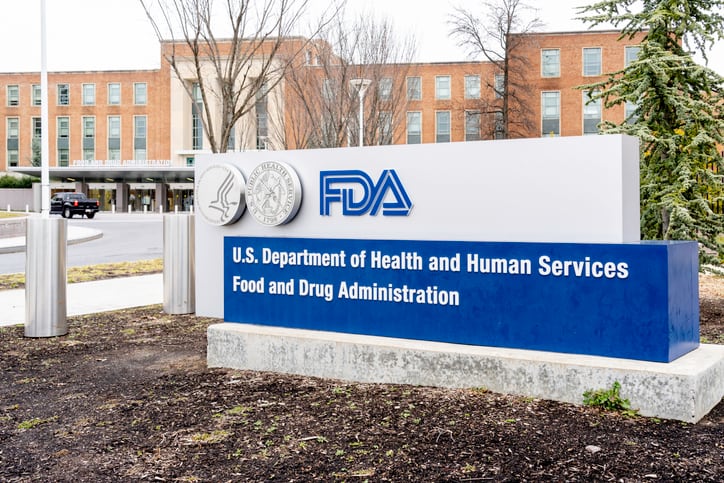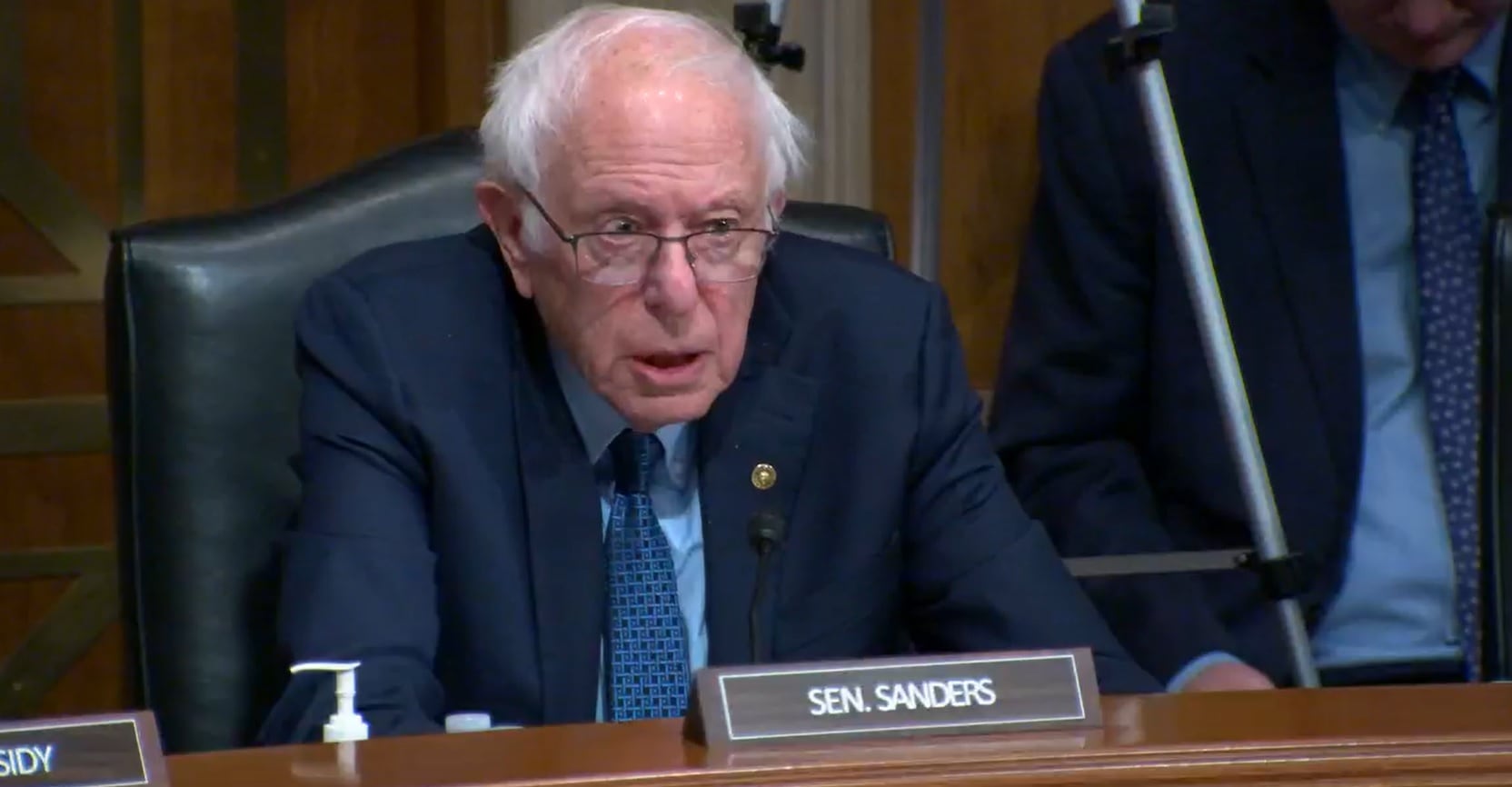Industry trade groups responded more carefully to the staff changes at FDA and HHS, with several reiterating their willingness to support FDA and the government going forward while simultaneously stressing the importance of the chemical food safety work and other initiatives Jones spearheaded while with the agency.
The broad spectrum of responses reflect a growing division among food and beverage industry, public health advocates and other stakeholders regarding the best direction for HHS and FDA under the Trump administration and the president’s close allies.
Jones’ retirement follows mass layoffs
In Jones' short tenure as FDA deputy commissioner for the newly minted Human Foods Program, he aggressively sought to improve food safety and systematically address long-standing concerns about select food additives, including the recent deauthorization of Red Dye No. 3 in food and brominated vegetable oil in food.
“I was looking forward to working to pursue the department’s agenda of improving the health of Americans by reducing diet-related chronic disease and risks from chemicals in food,” Jones wrote in in his resignation letter Feb. 18 to Acting FDA Commissioner Sara Brenner, according to several media outlets.
However, Jones wrote in his letter, after the Trump administration’s “indiscriminate” layoffs of 89 employees from the Human Foods Program, including those with “highly technical expertise in nutrition, infant formula, food safety response,” and ten who reviewed potentially unsafe ingredients in food, he said he felt it is “fruitless for me to continue in this role.”
Can FDA still ensure food safety?
Jones’ departure “is a huge step backward for the FDA and for the safety of our food,” said Scott Faber, senior vice president for government affairs at the Environmental Working Group.
“Jim Jones was the right person at the right time for the FDA’s foods program and was deeply committed to making America healthier. Under his leadership, FDA completed a long overdue reorganization that made the safety of food chemicals co-equal in importance with traditional food safety challenges,” he explained.
“No one was better prepared to make our food safer, especially the chemicals we eat. If the administration is truly committed to making America healthier, the administration should rescind cuts to food safety staff and plead with Jim to return to the FDA to finish the work he started,” he added.
Consumer Reports Director of Food Policy Brian Ronholm echoed Faber’s concern about the cuts.
“The cuts to FDA foods program demonstrates the Make America Health Again platform is a hollow one, as inadequate resources undercuts its goals and objectives,” he said. “Jim understood that the agency can’t remain viable under these circumstances because it sends a dangerous signal to consumers that they will be on their own on food safety.”
Center for Science in the Public Interest President Peter Lurie said the mass layoffs “make a mockery of the ‘Make America Healthy Again’ slogan by arbitrarily decimating new staff in key public health agencies who might actually implement the slogan.”
He compared the layoffs to going “into surgery with a hatchet instead of scalpel,” the result of which “is carnage.”
He also cautioned that “eliminating probationary staff in a widespread purge will make it harder to recruit qualified staff to fill the roles moving forward.” He explained, “Many candidates with high qualifications will likely opt not to work for a new boss whose vision for progress includes the arbitrary mass elimination of new employees.”
Trade groups: Proper resources ‘critical’
Industry trade groups struck a more conciliatory tone in their responses to the layoffs and Jones’ retirement, although several stressed the importance of sufficiently staffing and funding FDA as well as continuing the food safety work that Jones championed.
“To protect consumer access to safe, affordable and convenient food, the makers of America’s trusted household brands depend on the FDA to perform its regulatory role effectively, efficiently and transparently. An understaffed FDA could hinder Secretary Kennedy’s food safety goals and put consumers at risk. It is critical that the FDA has the proper resources to follow the latest science and move at the speed of consumer,” said Sarah Gallo, senior vice president of product policy, Consumer Brands Association.
She added the consumer packaged goods industry and Kennedy share a commitment to keeping food ingredients safe and improving nutrition.
As such, she said, CBA looks “forward to continue working with the FDA on ensuring the safety and accessibility of our country’s food supply.”
The Institute of Food Technologists “has worked with key stakeholders and policymakers around the world on the critical role science plays in ensuring a healthy food system, and we look forward to supporting the FDA and other key governing bodies moving forward,” IFT Chief Science and Technology Officer Bryan Hitchcock said following news of the layoffs and Jones’ retirement.
But, he also expressed a desire that Jones’ “vision for the future of FDA,” which “included greater transparency and collaboration” remain a priority for the agency.
“In recent comments to the FDA, we stressed the importance of chemical food safety that is scientifically grounded and constituent informed as timely pre- and post-market assessments of food additives is not only critical to ensuring public health but restoring consumer trust in our food system, as well,” he said.
Therefore, he added, “it is imperative that the FDA embrace the central role of food science in food and nutrition security, food safety and sustainable food systems as there remains a need for more science-based regulations – driven by additional food, agriculture and nutrition research – in policies and legislation.”
The Council for Responsible Nutrition, which represents the dietary supplement industry, walked a similar fine line in expressing optimism for working with the new administration while also underscoring the importance of sufficient resources for FDA to effectively oversee industry while balancing consumer and business needs.
“While staffing changes can occur during any presidential transition, it is critical that the FDA maintains the resources, expertise and staffing levels necessary to ensure effective dietary supplement oversight that undergirds consumer confidence in the supplement market,” CRN said.
It added that it is “excited to pursue” Kennedy’s vision in which dietary supplements are a “key component of integrative healthcare” and in which better nutrition and better health are more closely aligned.
However, it added, this vision “will require oversight and review of new ingredients, reasonable guardrails or the industry and enforcement muscle to ensure a level playing field. We hope the reductions in FDA staff to not jeopardize that vision.”
The Organic Trade Association similarly noted it “has built meaningful relationships with FDA over the years to ensure the safety of Organic food, and we’ll continue to do so in this new administration” to “maintain and strengthen current policies to uphold the deep trust that consumers have in the USDA Organic label.”
While FMI – The Food Industry Association did not comment on the layoffs or Jones’ retirement, it previously stated its willingness to work with Kennedy “and the new teams at HHS and FDA” to “strengthen our nation’s complex and interconnected food and drug supply chain while reducing regulatory burdens to ensure that all Americans have access to safe, nutritious and affordable food.”
It added that “HHS and FDA are critical agencies for ensuring the safety and affordability of our food and drug supply.”




